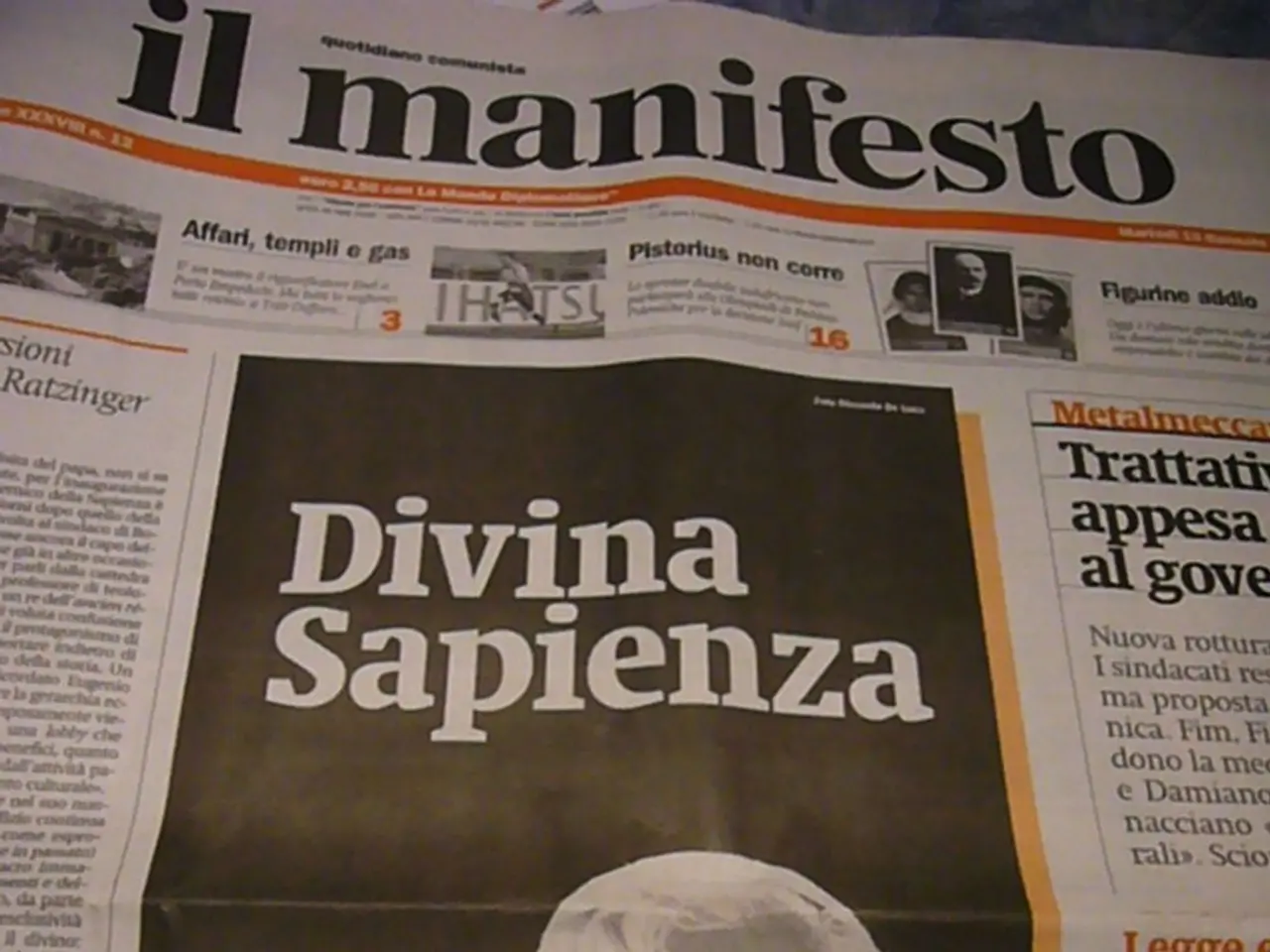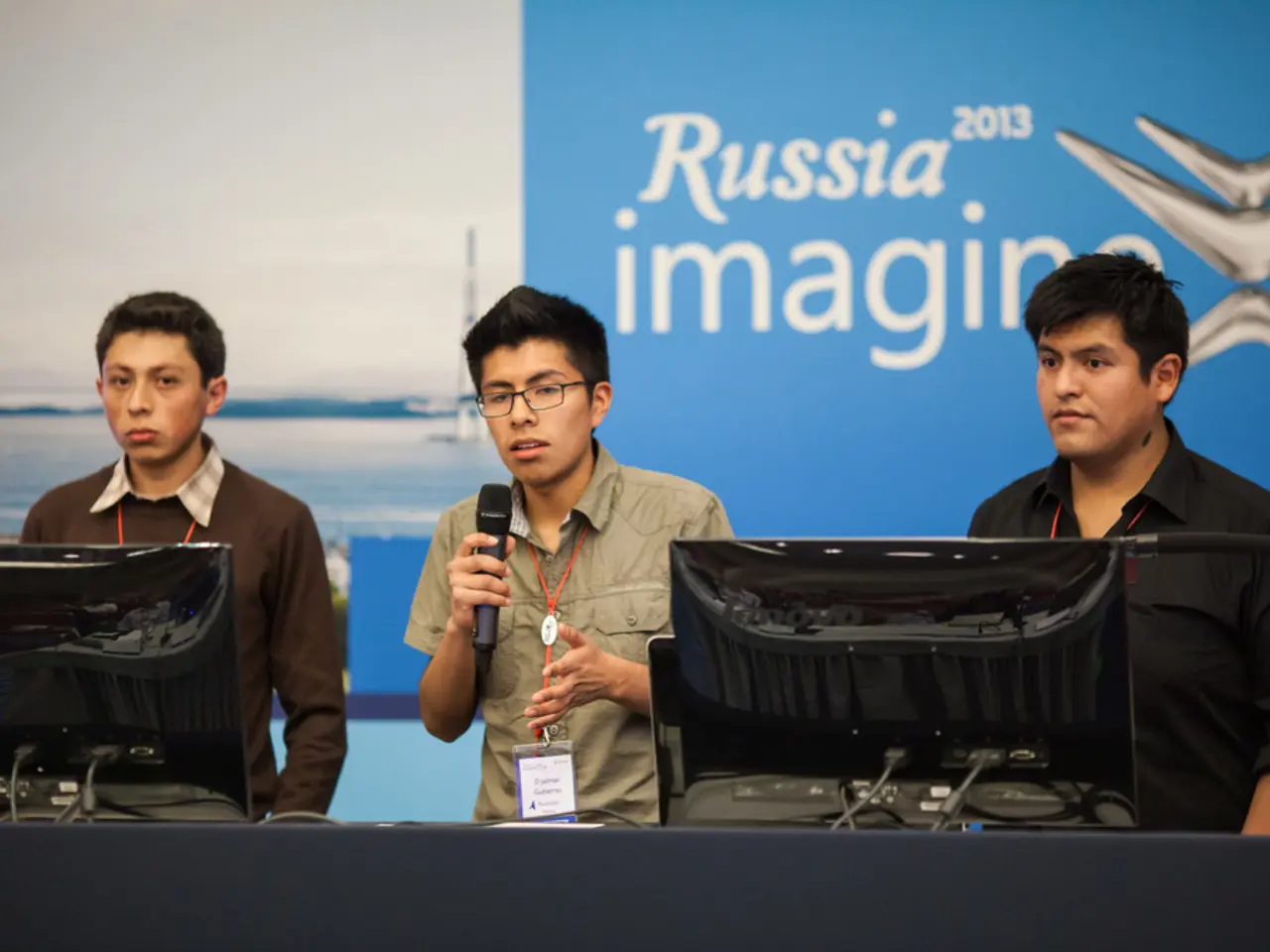Demystifying Democracy's Uprooted Reality
Authoritarian Tendencies: Exploring How Dialogue Undermines Democratic Structures
Welcome to the intricate web of information manipulation and strategic narratives that shape our democratic world today. Reality isn't fixed, and truth isn't an incontro vertible fact. Instead, we find ourselves in the daunting realm of post-truth politics, where emotions and strategic narratives rule the roost, with ugly consequences for our democratic institutions.
From Shared Reality to Raging Narratives
Fact and fiction roam free in our digital arena. Everything from elections to scientific consensus becomes fodder for the cafeteria of alternative realities, concocted to serve political interests. It's like being in a kingdom where the jester's lies and the kings' truths are indistinguishable.
During the 2016 Brexit referendum in the UK, a grand spectacle unfolded with claims that the nation sent £350 million per week to the European Union. This claim, as false as a three-legged produced donkey, yet potent enough to incite chaos, resonated deeply among voters, and it's safe to say that emotional appeal outweighed factual accuracy in that case.
This seismic shift in the foundational pillars of our democracies has profound implications. Institutions designed to mediate and safeguard democratic processes become mere props in a contest where dominant narratives dictate the direction of societies, reshaping institutions in their image.
The Collapse of Democratic Pillars
As truth becomes a player in a strategic fencing match, democracies lose their stability. Elections don't reflect the genuine will of the people anymore; they're reduced to battlegrounds where narratives clash, rather than national debates to determine the course for our societies.
This isn't just a temporary blip; it signals a more profound transformation in how political reality is constructed. In a post-truth society, deception becomes the key to legitimizing power, and political deliberation gives way to dominance of narratives.
The United States acts as a glaring demonstration, with Trump's repeated challenges to election results, relentless attacks on the judiciary, and the construction of his own alternate reality, showcasing how discursive power can jeopardize democracy from within. The specter of an authoritarian state doesn't appear suddenly but emerges like a creepy funeral procession, twisting the democratic institutions we cherish.
Language and Power
Power isn't just a matter of economic dominance or repression; it's also about your mastery over language. Those who control the narrative effectively control reality itself. From Michel Foucault's concept of power-knowledge nexus to Jan Blommaert's discursive stratification, the importance of discourse and its role in reinforcing power structures are loud and clear.
Actors in the political sphere perfect the art of rhetoric, manipulating discourse to entrench their rule, undermining election, judicial independence, and press freedom - the very pillars of democracy - relegating these institutions to the role of figureheads shaped by discursive power dynamics instead of the bastions of truth they were meant to be.
From Manufactured Consent to Algorithmic Aggression
Whistleblower Chomsky and Herman's concept of manufacture of consent loses its significance in the light of today's social media landscape. While traditional media once controlled discourse through media manipulation, agenda-setting, and selective framing, the rise of social media has shifted the game.
Unlike traditional media, which maintained an editorial oversight on journalism, social media platforms are driven by algorithms that foster polarization and breed segments of fragmented realities, further eroding the epistemic foundations of democracy. Democracy erodes as facts take a back seat to alternative realities engineered to serve political agendas.
The Real-life Consequences of Deception
Epistemic crises have tangible, far-reaching consequences. In the realm of foreign affairs, leaders like Trump distort the facts to manipulate public perception, paving the way for geopolitical shifts favorable to their self-interest. Trump, for example, has criticized Ukraine for being run by a dictator without elections, despite Ukraine having a functioning democracy.
Crafting distrust makes for great political theatre, and Trump's characterization of Ukraine demonstrates how political leaders mislead the public by distorting geopolitical realities. This is the ugly power of epistemic crises—how truth is twisted to serve one's political mastery.
The Irreversible Reality Check?
The current state of affairs echoes the destructive manipulation of facts during Watergate and the "stab-in-the-back" myth in post-World War I Germany. However, what separates the present from these historical instances is the scale and speed at which strategic misinformation thrives in a world dominated by social media.
While democracy's fall from grace hasn't occurred out of thin air, the question isn't whether democracies can fall victim to authoritarianism, but rather how rapidly this transition materializes and through what mechanisms it takes place.
Ultimately, as long as truth remains subordinated to power, the dance of democracy fades away, leaving us with narratives wielded by cunning rulers rallying their throngs under the banner of a grand lie. Deception isn't just a utensil in power's toolkit; it's power incarnate.
References:
- McIntyre, L. (2018). Post-Truth. London, England: MIT Press.
- Foucault, M. (1982). The subject and power. Critical inquiry, 8(4), 777-795.
- Blommaert, J. M. E. (2005). Discourse: A critical introduction. Cambridge University Press.
- Herman, E. S., Chomsky, N. (1988). Manufacturing consent. New York City: Pantheon Books.
- Fuller, S. (2018). Post-truth: Knowledge as a Power Game. London and New York: Anthem Press.
Enrichment Data:
Overall:
The collusion of discursive power, profit-driven social media, and post-truth politics critically destabilizes democratic institutions in contemporary democracies, by eroding the principles of informed debate, accountability, and trust.
Erosion of Democratic Deliberation and Polarization:
Social media platforms, driven by profit, use algorithms that cater to users' existing beliefs, thereby reinforcing ideological divides instead of facilitating dialogue across differences, thus deepening political polarization and entrenching extremist views, shattering the social cohesion essential for democracy.
Spread of Disinformation and Distrust:
Profit motives incentivize sensational and divisive content, thereby enabling rapid dissemination of misinformation and disinformation campaigns that undermine trust in democratic institutions and public officials, eroding citizens' confidence and willingness to participate constructively in democratic processes.
Challenges to Accountability:
The Internet, social media, and polarization complicate the accountability chain in democracies. By fostering misinformation and political fragmentation, the overall impact reduces transparency and accountability in governance.
Normalization of Democratic Backsliding:
In this digital landscape, populism and authoritarian tendencies flourish as polarized publics and destabilized democracies become vulnerable to undemocratic tactics. The convergence of discursive power and profit motives on social media facilitates the manipulation of political narratives, contributing to democratic backsliding even within established democracies.
Calls for Regulation and Democratic Renewal:
Experts propose regulatory measures addressing algorithmic transparency, community-led fact-checking, and the creation of alternative digital public forums to counteract these effects. Strengthening democratic dialogue and accountability mechanisms are crucial to restoring the public sphere and revitalizing democratic institutions threatened by post-truth politics and social media's governance model.
- The manipulation of language and truth in post-truth politics has significant implications for identity, with political leaders shaping narratives to strengthen their rule and reshaping democratic institutions in their image (identity, politics).
- Social media platforms, driven by profits, create fragmented realities through algorithms, undermining general-news discourse, fostering polarization, and eroding the epistemic foundations of democracy (general-news, social-media, politics, epistemic crises).
- In a post-truth society, health disinformation can spread rapidly, for instance, misleading claims about vaccines or public health practices, causing harm to individuals and communities (health, disinformation).
- As the spread of deception impacts democratic institutions, entertainment and news content can also become tooled for polarization, serving political agendas, and manipulating public opinion (entertainment, news, politics).





